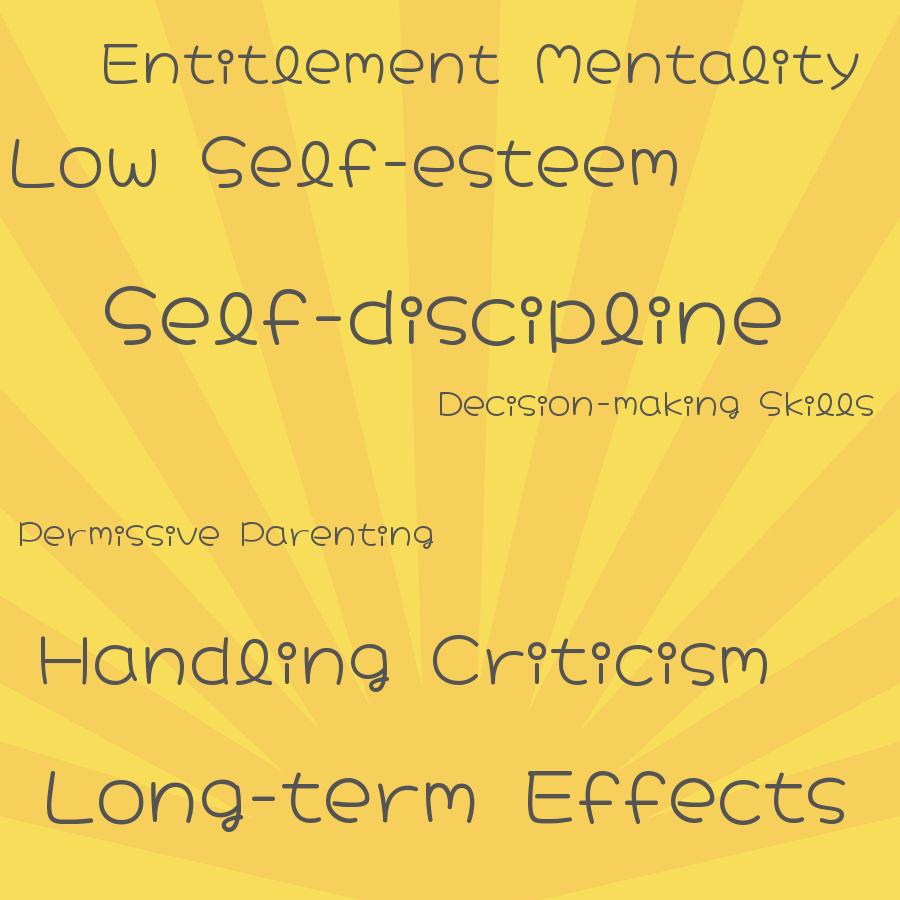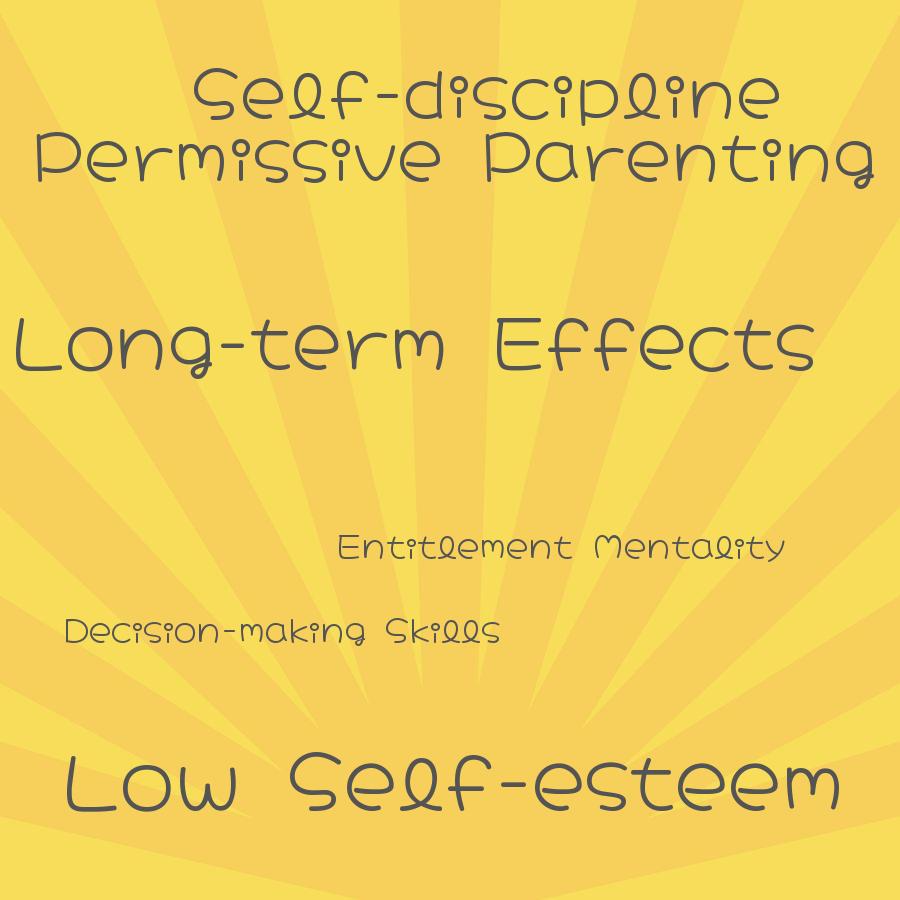Permissive parenting can lead to children with poor self-discipline, low self-esteem, and difficulty in making decisions. They may also struggle with authority figures and have a hard time adapting to rules and boundaries.
As a child, I remember my friend’s parents were the coolest. They let her stay up late, eat junk food whenever she wanted and never scolded her for anything.
On the surface, it seemed like they were the perfect parents who gave their daughter everything she desired. But as we grew older, I noticed that my friend was struggling with decision-making and lacked self-discipline.
It wasn’t until later that I realized that her parents practiced permissive parenting.</p>
Permissive parenting is a style where parents are more lenient and less demanding of their children’s behavior. They often avoid confrontation and allow their children to make decisions without guidance or consequences.
While this may seem like an easy way out for both parent and child in the short term, it can have long-term effects on a child’s development.
In this article, we’ll explore what permissive parenting is and its potential long-term effects on children as they grow into adults. So buckle up as we dive into this controversial topic!
Here You Will Learn:
Lack of Self-discipline


Growing up, my friend’s parents were always the ones who let her do whatever she wanted. They never set any boundaries or rules for her to follow.
As a result, my friend lacked self-discipline and struggled with decision-making as she grew older.
Permissive parenting can lead to a lack of self-discipline in children because they are not taught how to regulate their behavior or make responsible choices. Without guidance from their parents, children may struggle with impulse control and have difficulty following through on tasks.
As adults, individuals who were raised under permissive parenting may find it challenging to maintain healthy habits such as exercise routines or sticking to a budget. They may also struggle in professional settings where discipline is necessary for success.
It’s important for parents practicing permissive parenting style to understand that while it might seem like an easy way out in the short term; it can have long-term effects on their child’s development which could be detrimental later on in life if left unchecked.
Poor Decision-making Skills
Growing up, my friend’s parents never set any boundaries or rules for her. They allowed her to make decisions without guidance or consequences.
While this may have seemed like a dream come true for my friend at the time, it had long-term effects on her decision-making skills.
As she grew older and faced more significant decisions in life, such as choosing a career path or managing finances, she struggled to make informed choices. She lacked the ability to weigh pros and cons critically and often made impulsive decisions that led to negative outcomes.
Research has shown that permissive parenting can lead children towards poor decision-making skills later in life because they lack structure and discipline during their formative years. Children who grow up with little guidance are more likely to struggle with self-control when making important choices as adults.
It is essential for parents not only to provide love but also establish clear boundaries while guiding their children through critical decision-making processes from an early age. This way, they will be better equipped with the necessary tools needed later in life when facing challenging situations where good judgment is required.
Low Self-esteem
Growing up, my friend always struggled with low self-esteem. She constantly sought validation from others and had a hard time making decisions on her own.
As I learned more about permissive parenting, it became clear that her parents’ lack of guidance and structure may have contributed to these issues.
Children who grow up with permissive parents often struggle with low self-esteem because they never learn how to make decisions for themselves or take responsibility for their actions. They may also feel neglected or unimportant since their parents are not actively involved in shaping their behavior.
As adults, individuals who were raised by permissive parents may continue to struggle with low self-esteem and have difficulty asserting themselves in personal relationships or professional settings. This can lead to missed opportunities and a lack of fulfillment in life.
It’s important for parents to strike a balance between being supportive while still setting boundaries and expectations for their children’s behavior. By doing so, they can help foster healthy development that will benefit them well into adulthood.
Entitlement Mentality
Growing up, my friend’s parents practiced permissive parenting. They rarely set boundaries or enforced rules, which led to her developing an entitlement mentality.
She believed that she deserved everything without having to work for it or face any consequences for her actions. This sense of entitlement can carry over into adulthood and affect a person’s ability to function in society.
Adults who were raised with permissive parenting may struggle with taking responsibility for their actions and have difficulty accepting criticism or feedback from others. Furthermore, this mindset can lead to unrealistic expectations in the workplace and personal relationships.
It can also hinder personal growth as individuals may not be willing to put in the effort required for self-improvement if they believe they are entitled to success without working hard. While permissive parenting may seem like an easy way out at times, it is important that parents understand its potential long-term effects on their children’s development – including the development of an unhealthy sense of entitlement mentality that could negatively impact them throughout their lives.
Difficulty in Handling Criticism
Growing up, my friend had a hard time handling criticism. She would often become defensive and lash out when someone pointed out her mistakes or flaws.
As I got to know her better, I realized that this was because she never received constructive feedback from her parents while growing up. Permissive parenting can lead to difficulty in handling criticism as children are not used to being corrected or disciplined for their actions.
They may grow up with an inflated sense of self-importance and struggle with accepting negative feedback from others. This can have serious consequences in the long run as they enter adulthood and face challenges at work or in personal relationships where receiving constructive criticism is essential for growth and improvement.
It’s important for parents practicing permissive parenting to understand that providing guidance, discipline, and constructive feedback is crucial for their child’s development into a well-rounded adult who can handle life’s challenges effectively.
Inability to Cope With Failure
Growing up, my friend’s parents never allowed her to experience failure. They always swooped in and fixed any problem she had, whether it was a bad grade or a disagreement with friends.
While this may have seemed like they were protecting their child from harm, it actually hindered her ability to cope with failure as an adult. Children who grow up under permissive parenting often struggle when faced with challenges because they lack the skills necessary to handle them.
Without guidance on how to deal with setbacks and failures, children can develop low self-esteem and anxiety when things don’t go according to plan. As adults, these individuals may find themselves struggling in the workplace or personal relationships due to their inability to cope effectively with stressors that come along the way.
It’s important for parents practicing permissive parenting style understand that allowing your child space for growth through mistakes is essential for long-term success in life.